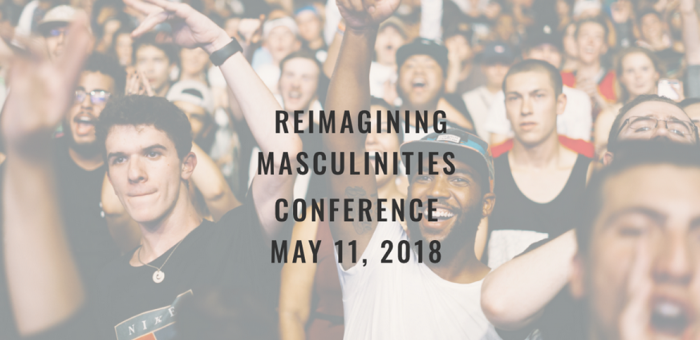Reimagining Masculinities Conference 2018
Today I had the distinct honour of providing the opening remarks at the Reimagining Masculinities Conference 2018 held at the University of Victoria.
As noted on the conference website:
ReImagining Masculinities is cultivating meaningful conversations about healthy, non-violent masculinities. Our hope is to inspire empathy, action, and self-reflections through conversation, education, and awareness.
Online streaming of the conference is also available.
Below I reproduce the text of my opening remarks.
Text of Opening Remarks
Opening statement – Reimagining Masculinities
Thank you everyone for being here today to explore an issue that isn’t often discussed in such a public setting.
I’ve been given the opportunity to say a few words about Reimagining Masculinities and as both a professor at UVic and MLA for this riding, it is my absolute pleasure to do so.
Please keep in mind that I teach climate science rather than gender studies, but I will do my absolute best.
This conference is such an accomplishment, not only because of the topic, but because of the breadth of talent represented as well.
Paul Lacerte has many fans in the legislature who are proud to wear their moosehide campaign pins and I hope everyone here today will pledge to get involved.
We could surely all benefit from more poetry in our lives and I know Councillor Jeremy Loveday will show that politicians can have a way with words.
The links between Tanille Geib’s Healthy Relationships workshop and Allan Wade’s analysis of colonial masculinities show just how complex this topic really is.
When I consider toxic masculinity, it is not hard to make connections to the events that we hear about every single day.
Whether it’s disgraced actors or the tragedy in Toronto, the MeToo movement has highlighted just how big an impact toxic masculinity has on all of us.
It’s possible that until recently a lot of men may not have realized the extent of abuse that women have always had to deal with.
On the other hand, I want to avoid the idea that the only role men can play in the movement is of the accused.
This conference is a prime example of the role that men can play in addressing this problem, and it’s something that I have always tried to do as an MLA.
Through collaboration with the previous government, I was able to ensure that legislation passed to require all universities and other postsecondary institutions in British Columbia to implement comprehensive sexualized violence and misconduct policies.
My hope was that survivors of sexualized violence on campus would be better supported by their schools, and that the process would be more transparent for all involved.
Based on our initial consultations it appears as though this has been the case. I thank Kayla Phillips, who has been working diligently in our BC Green Caucus as a legislative intern.
She has been spearheading our efforts to determine the effectiveness of the legislation that we introduced two years ago.
I was also able to introduce and get implemented a law that banned employers from requiring their employees to wear high heels which had been a problem particularly in jobs like serving where women have traditionally been subject to high levels of sexual harassment.
While it has not righted all wrongs in the industry, I have spoken with many women who are happy to no longer fear losing their job for refusing to wear painful footwear.
This conference also highlights the importance that intersectionality plays when considering toxic masculinity. This is not simply an issue of masculine men and feminine women, but a whole spectrum of those with varying identities impacting their own experiences.
I encourage anyone involved in tackling toxic masculinity and its effects to think outside our standard binaries for innovative solutions, such as we have here today.
I would like to thank hosts Scott Thompson & Steven Hao as well as the organizers, including Nick Sandor, for asking me to speak today.
I’d now like to introduce Member of Parliament for Winnipeg South and Parliamentary Secretary for the Status of Women, Terry Duguid.
Terry’s appointment in this role is a great example of how the status of women in Canada is not a responsibility that rests solely with women, and the part that everyone has in addressing it.
While Terry can’t be here in person, he can tell you more about his role through this video:
I’m also lucky enough to be joined by MLA for Esquimalt-Metchosin, Mitzi Dean. Mitzi was recently named Parliamentary Secretary for Gender Equity in BC and it’s hard to imagine a better choice for that role in the legislature.
Before her election last year she had spent many years advocating for women and children in various parts of the world and with the U.K.’s largest child protection charity. She now brings that experience to share with you today.
Comments are closed.




